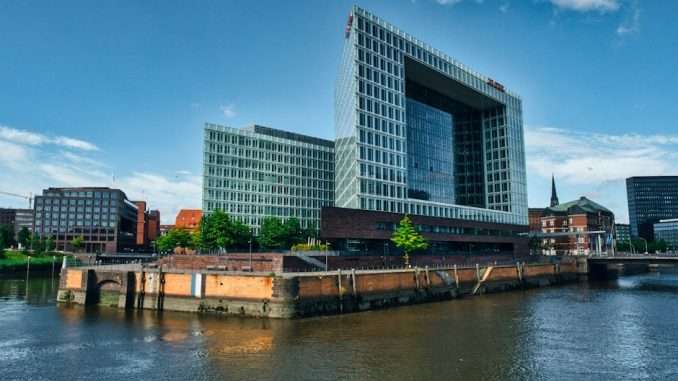
Bristol, a city steeped in maritime heritage and cultural richness, stands on the cusp of a transformative epoch that promises to redefine its urban landscape and invigorate its dynamic city centre. The impetus for this metamorphosis is the site of the former Debenhams department store, an emblem of retail history whose closure in May 2021 signalled the end of an era and the beginning of an exciting new chapter in the city’s narrative.
Nestled in the heart of Bristol, the renowned edifice is poised to be supplanted by a bold initiative that envisages the creation of 505 state-of-the-art rental apartments, intermingled with a vibrant selection of retail outlets, dining options, and communal spaces. This project transcends conventional construction endeavours; it represents a revival in urban planning, marrying the appeal of contemporary habitation with a profound homage to the city’s historic fabric, and sparking an economic renaissance unprecedented in Bristol’s recent history.
The audacious plan, teetering on the brink of obtaining planning consent, intends to significantly transform Bristol’s skyline with towering blocks reaching up to 28 stories. These edifices symbolise more than mere vertical expansion—they epitomise a holistic vision for an inclusive, energetic, and aesthetically appealing environment. A notable element of the proposed development is Barr’s Street, a pedestrian avenue that meets the requirements of the Disability Discrimination Act, embedding accessibility into the very essence of the new cityscape.
The project’s designers have infused a sense of poetry into the redevelopment with the restoration of a medieval street, threading through the city’s core to re-establish the connection between the Bearpit and Horsefair. This rejuvenation acts as a conduit between the past and the present, a synthesis of historical reverence and contemporary ambition, and provides a tangible link to Bristol’s heritage while propelling it towards a vibrant future.
The implications of this transformation ripple out to encompass more than just the physical realm; they promise to ignite an economic revival. An estimated 264 new jobs are expected to materialise, in addition to 380 construction positions during the development phase, energising the local employment market. Retailers in the Broadmead vicinity are poised to benefit from an estimated £11 million uplift in annual consumer spending, nurturing prosperity and regeneration within the community. Moreover, the Bristol City Council stands to reap substantial financial gains, with £1.8 million anticipated from the New Homes Bonus, approximately £920,000 in annual Council Tax revenues, and £125,000 per annum in Business Rates. This windfall could serve as a crucial catalyst for further urban initiatives and societal projects.
The aspiration for the Debenhams site’s rebirth is to establish a bustling, permeable, and secure precinct that exemplifies urban redevelopment and community cohesion in Bristol. The design anticipates a dynamic streetscape brimming with commercial energy and social engagement, becoming an epicentre for both inhabitants and visitors. With an allocation of roughly 20 percent of the residential units as ‘affordable’, the initiative emphasises a dedication to inclusivity and diversity within the housing market, nurturing a community reflective of Bristol’s multifaceted demographic mosaic.
As Bristol teeters on the brink of this pivotal transformation, the forthcoming deliberation over the Debenhams redevelopment at next Wednesday’s planning committee meeting is poised to become a landmark event in the city’s planning annals. This juncture not only captures the essence of the eight-year Labour administration under Mayor Marvin Rees but also signifies a vision of Bristol as an exemplar of urban revitalisation and sustainable development.
This narrative of the Debenhams site is not an isolated phenomenon; it is part of a larger pattern of urban renewal sweeping across Bristol. Another ambitious venture on the horizon is the proposed erection of 160 flats on the Baltic Wharf caravan park, idyllically located at the Floating Harbour. Collectively, these initiatives represent a broader movement towards rejuvenation that is taking root in the city’s heart, heralding a future filled with potential and optimism.
The impending decision on the Bristol City Centre Debenhams proposal is emblematic of more than an infrastructural renovation; it is the precursor to an economic, social, and cultural rebirth. As Bristol stands at the threshold of this momentous era of change, the anticipation of its citizens is palpable, as they eagerly envisage a future that shines with the promise of inclusivity, vitality, and prosperity for the city and its people.


Be the first to comment